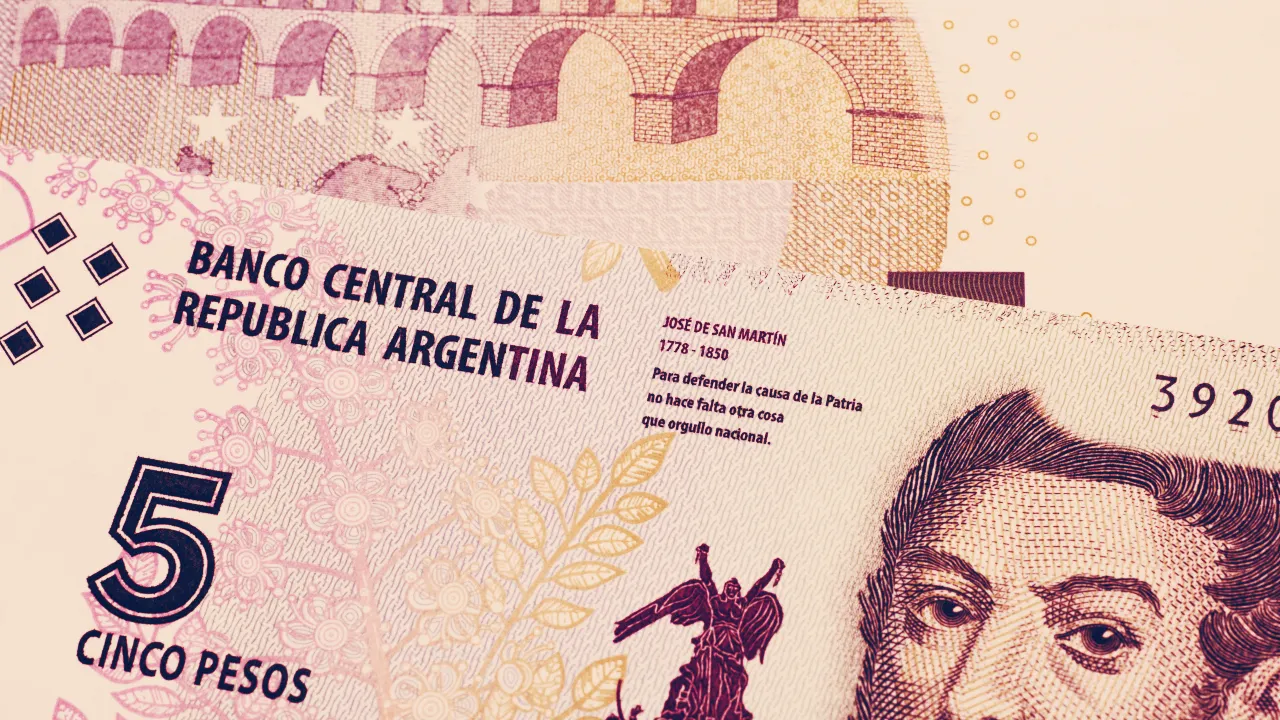In brief
- Argentina's central bank has developed a private blockchain for payments based on RSK Bitcoin smart contract tech.
- The bank will test the network to track the status of claims and payments in real time.
- IOV Labs has many other blockchain projects in the works in Argentina.
The Central Bank of Argentina is jumping on board the blockchain train for a test run.
The central bank announced yesterday that it is trialing a new payments system developed by blockchain company IOV Labs. The system is a proof of concept for a permissioned (i.e. private) blockchain network based on RSK Bitcoin smart contract technology, designed to optimize the way the bank handles payments and claims.
The idea for the project, according to IOV Labs, grew out of the framework of the Financial Innovation Roundtable of 2019, which sought the integration of different tech players within Argentina. The goal of the roundtable was to develop proposals to improve payment, collections, and other processes to better serve banking clients.
Throughout 2019 and early 2020, the Central Bank of Argentina has worked with various partners to develop a blockchain solution, including the Blockchain Group (which is made up of IOV Labs and the Sabra Group, along with the Banco de la Provincia de Córdoba, BBVA, ICBC, Banco Santander, BYMA, Interbanking, and RedLink).
The new RSK-based proof of concept ensures a type of common framework that guarantees the interoperability of some individual systems maintained by banks, FinTech companies, and public/private operators. Through the implementation of RSK smart contract technology, the central bank can track the status of each claim from its inception to its solution in real time.
"We are convinced that the implementation of this type of platform will be able to build a collaborative ecosystem for the financial system as a whole," said Diego Gutiérrez Zaldívar, IOV Labs CEO.
IOV Labs is, of course, no stranger to Argentina. In September, the company acquired Taringa—Argentina's largest social network—with plans to integrate its Bitcoin-based tech on the platform. The company said at the time that it planned to leverage Targina’s user base to promote use cases for the RSK blockchain, especially by improving its moderation and reward system.
The company is also working with one of Argentina’s largest natural gas distributors Gasnor to develop a blockchain-based network called Gasnet, which is designed to help the gas company cut costs.
Editor's note: This article was updated after publication to clarify how RSK technology is being used by Argentina's central bank.

